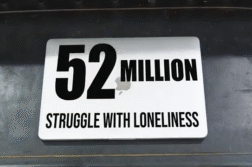ORLANDO, Fla. Ivanhoe Newswire) — You might think large foundations and corporations are the main suppliers for charities, but individuals actually account for 72 percent of all donations. Unfortunately, individuals can be tricked into giving their donation to fake charities.
When disaster strikes, organizations like the American Red Cross are ready.
“a big part of what we do in terms of community education is fire safety plans for families, and disaster education, period. What do you do during times of a hurricane, tropical storm, flooding,” said Judge Renee Cardwell Hughes, CEO of American Red Cross, Southeastern Pennsylvania Chapter.
And people across the country come together to volunteer and donate after national disasters. But sadly, there are some who use tragedy to make a profit. Look out for fake Facebook pages that claim to be dedicated to a cause or a suffering victim. A recent wall street journal article says a new scam involves online crowdfunding campaigns. Some are legitimate, some are not. Unlike public charities, they are not required to disclose their finances. You can use websites such as charity navigator, the better business bureau, and Guidestar to get details on charities. Or check the IRS website to see if an organization has been registered. Tax-exempt charity websites will not have a dot-com address, only dot-org.
After a few months, disasters can be forgotten by those who were not affected. Eileen Heisman, CEO of the National Philanthropic Trust, says you can check shelters or the amazon wish list that gathers items for victims who are still in need. Even after a year, volunteers and donations are typically still needed.
Contributors to this news report include: Hayley Hudson, Producer; Roque Correa, Videographer and Editor.
To receive a free weekly e-mail on Medical Breakthroughs from Ivanhoe, sign up at: http://www.ivanhoe.com/ftk



